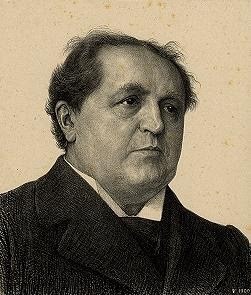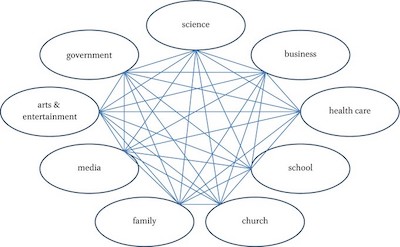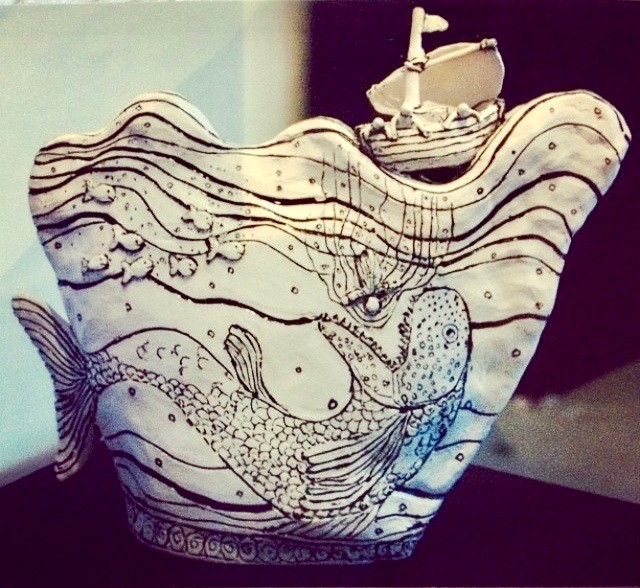

Dr Sue V Halliday is the KLC Research Fellow in Business, Marketing and Entrepreneurship. Jack W. Harding is a member of the KLC Interdisciplinary Group.
Introduction
A brief word of caution to our understandable desire for life to get back on track after the COVID-19 pandemic: Has the “new normal” we all talked about quickly become something from which we want to wake up entirely? Weren’t there problems with the “old normal?” The weaknesses in the economy and business world, both globally and in the UK, surely mean that we would not want to go back to the “old normal” in its entirety, even if we could. For the “old normal” had many problems, such as growing financial inequality and seemingly insurmountable environmental challenges.

We want to take this moment as an opportunity to reframe business as a means to a greater end, namely human flourishing, suggesting that Christians have something important to say to the business world regarding what this “new normal” might look like, and that the Dutch thinker Abraham Kuyper can help us in this as we seek to recover a more robust framework for meaning, society and business. Kuyper was a polymath with a rare calling that led him to involvement in multiple areas of life. A pastor with a sharp philosophical mind, a politician who founded a political party and later became prime minister of the Netherlands, founder of the Free University of Amsterdam and its first Rector, and a journalist who started a newspaper. So Kuyper was not just a thinker, but also a do-er. And one of his guiding principles was that all aspects of reality are connected. Regarding the complexity of the modern world, Kuyper advises us against the temptation of fragmentation: “no single piece of our mental world is to be hermetically sealed off from the rest”(1) – in other words, all of reality is connected. Business is not an island unto itself, any more than is man.(2)
The Journey
For our purposes, imagine our global economy as a journey; businesses, societies, and groups within those societies as the boats; and individuals as passengers. The sea right now is the COVID-19 pandemic, yet will not be so forever. The boats keep moving, as they must. People need jobs, shareholders require returns and there is great excitement in innovation and progress. Additionally, we all need to eat and drink, and desire other luxuries and items. Yet is the purpose of the boats merely to provide us with things to spend our time and money on, allowing for our own individual voyages, or is there a shared direction along which we could all sail? Could a revitalised sense of direction become part of a post-COVID “new normal?”
“Old normal” is aptly characterised by sociologist Jacques Ellul: “Our civilization is first and foremost a civilization of means; in the reality of modern life, the means, it would seem, are more important than the ends.”(3) In other words, the voyage of Western civilisation has, of late, been confused and self-indulgent, lacking the kind of direction that will sustain it, lacking any clarity about an end goal.
In the world of “old normal,” informed by the 18th century Enlightenment, we basically live as if God does not exist. We have excluded him from our accounts of our current lives as political, social, biological and economic persons. The immediate focus is on health, wealth and personal peace. These, however, are means rather than more meaningful ends such as beauty, goodness and truth – or knowledge of and communion with the transcendent.
Any society is made up of an economy, a political system and its civil and religious institutions. Kuyper calls these areas or elements, “spheres.”

Kuyper’s spheres of society
In our world, each sphere is tempted by the devil’s offer to affirm itself as god – to become
an end in itself, rather than a means working towards a greater end. If the devil’s offer were accepted, then the sphere of business would turn a monetary profit at any cost, the sphere of government would grab unprincipled and reckless power, and the spheres of civil society would cease to cast a vision for the good life, or for community and connection, instead affirming individualism and self-sufficiency. The fear that haunts all of us who find solace in these dysfunctional ways of doing business, politics and civil society is that if we were to give up our primary allegiance to these things we will not be provided for. This is the devil’s lie.
However, believing this lie is not the only option. Kuyper is very clear that business is open to common grace as much as any other “sphere,” and therefore is part of something meaningful beyond itself. Just as much as any other “sphere” it finds its place, therefore, in the project of aiming for something more than mere survival; it plays a role in wealth creation in terms of society’s enjoyment of “the good life.”
This brings a humbling critique to any business activity we might view as, to use Peter Heslam’s words, “speculative activity in finance, burgeoning consumerism, and the prioritisation of wealth above all other concerns.”(4) This is an economy that has become an end in and of itself. The “old normal” tolerated the world of corporations becoming a dominating sphere, not taking their place as one among other spheres, not fostering wider human flourishing.
Our picture of a voyage raises the question: “Where are all these boats going?” Kuyper’s Christian faith answers by finding our compass point and provision in the reality of God. The question of an “end,” that is, setting a course for the journey, is answered not in our own self-determined reality. It was said of followers of Jesus that they left their old lives and “followed him along the way.” All things, be they business, family, church, leisure, are created good and with purpose, as gifts to us. Kuyper famously stated that there is not one square inch of all creation over which Christ, who is Lord of all, does not say, “Mine!”(5)
Therefore, if God is the creator and sustainer of all, while each sphere operates differently it remains connected to this larger calling and purpose. Jesus pre-empts our question: “Will we be provided for if we see businesses as just one sphere, co-equal to the other spheres?” He answers this and similar questions: “Whoever wants to save their life will lose it, but whoever loses their life for me will find it” (Matthew 16:25). In one of C.S. Lewis’ letters he restates Jesus’ message thus: “Put first things first and we get second things thrown in: put second things first and we lose both first and second things. We never get, say, even the sensual pleasure of food at its best when we are being greedy.”(6)
The Challenge
Right now we need to reconnect business to its rightful place within society. This may be a fruitful time for these ideas, the framework of distinct but interconnected spheres. The neo-liberal view that the sole purpose of the firm is to make financially defined profits for shareholders has allowed businesses to be independent, self-sufficient and an increasingly dominant force. Milton Friedman’s influential yet narrow view is that “there is one and only one social responsibility of business – to use its resources and engage in activities designed to increase its profits so long as it stays within the rules of the game, which is to say, engages in open and free competition without deception or fraud.”(7) The wisdom of this view is coming under increased scrutiny both in the UK and in the United States, as was the case before the COVID-19 pandemic. Now, wider “stakeholder” relationships are crying out for a deeper consideration (What about the human need for “meaningful” employment? What about the poor?, What about the locale that the business operates in?, What about the planet?). The challenge is that we in the West are thoroughly pluralistic in our meaning convictions, so how can we distinguish first things from second things, to use Lewis’ language? The question presents itself: Is a baseline cultural narrative available to unite different individuals (and businesses) in a more purposeful, unified journey?
Kuyper rejects attempts to claim that a Christian worldview should take over the whole culture, steering between the twin dangers of, on the one side, Christianity as a totalising, top-down government system, and on the other side, the pietistic Christian tradition that withdraws from an ungodly world. For Kuyper “Culture … was not inherently evil, but was ‘perverted good’ and could therefore be ‘radically transformed to the glory of God’.”(8) In sum, this is what we can now describe as a “Christian” meaning for the goal of human flourishing: transformation coming from making first things first, with secondary things thrown in. Reflection upon what constitutes “first things” will be a necessary task.

Where does that leave us?
Much more could be said, but here are a number of “routes” for our collective journey that have been attempted:
1. Liberalism: the individual’s choices are the primary organising principle.
2. Socialism: the group’s choices are the primary organising principle.
3. Religion/metaphysics: systems of “absolute truth” are the organising principle.
4. Happiness: quantifiable happiness is the organising principle.
Prominent thinkers Alasdair MacIntyre (9) and Patrick Deneen call Enlightenment liberalism a failed project. This is because it has lost a shared vision of the common good. Individualism has, instead, eaten away at such shared understandings of life and the gap between the individual and state is decreasingly populated. “Statism enables individualism, individualism demands statism. For all the claims about electoral transformations – for ‘Hope and Change’ or ‘Making America Great Again’ – two facts are naggingly apparent: modern liberalism proceeds by making us both more individualist and more statist … both move simultaneously in tune with our deepest philosophical premises.”(10)
Bob Goudzwaard explained why Enlightenment thinking has not proved capable of providing for human flourishing. It is because “life is meaningful only if there is a measure of simultaneous response to all the norms for human existence. Thus, socioeconomic life should not be separated from the rest of our existence.”(11) Although conceived as a light shining out beyond the darkness of wars of religion, it can now be seen to have failed to create human flourishing. Interestingly, Goudzwaard offers a clue to this problem by distinguishing two concepts in Greek civilisation from which “economics” has developed. “Chrematistike” is a notion of self-enrichment, and fits the current independent business approach that privileges shareholder financial profits. The more commonly understood root is “oikonomia,” which contains a much more holistic, biblical idea of stewardship and a care of resources for both now and for future generations.
To repeat, the business sphere is not independent, but interdependent with the other spheres of the social order. After all, to paraphrase Jesus, what profit is it to gain in one area only to lose the whole thing? Repeated failure to create a culture resulting in human flourishing calls for a re-think regarding our society, and within it, business.
Kuyper’s route, rather than the routes 1-4 above, is to cast a vision from his understanding of God’s work of common grace in the world, as organising principle, that leads to a holistic, systemic understanding of society. He focuses less on individual rights (although history shows that some level of attention to these is essential) than on belonging in communities, families, religious affiliations, and civil society, including business as a part of civil society, on the many mediating structures between the State and the individual. A subsequent benefit is then that this integrated society, full of mediating structures, might holistically form the individual person as a virtuous citizen.
Additional questions demand consideration within the “human flourishing” motif. Is there a sufficient, unifying vision for the business world that we Christians can develop and communicate that is attractive for those who do not hold to Christian metaphysics? If one does exist, having given it some more thought and definition, could we develop a narrative that could be a contribution from Christians into the post-COVID “new normal” for business? Could this give meaning and so, direction, for businesses as they continue on their journey?
For those interested in considering the legitimacy of business post-COVID, work needs doing on the interconnectedness of the economy: clearly connecting economic players such as corporations and the health and well-being both of the workforce and society members at large. Kuyper’s thought can usefully be brought to bear on this task, focused on his understanding of society as an ecosystem of spheres of activity. A biblical framework would require that business affirms the connection with, and necessity of, wider justice and morality considerations in its own core operations.
A once essential pillar of our civilisation that Jesus Christ established and modelled was a vision for the good human life that was surprisingly inclusive. It privileged the poor and the disadvantaged; it measured human value without regard to financial wealth. It gave birth to a truly novel focus on human dignity and eventually, universal human rights,(12) even though this link is now barely acknowledged. Indeed, Jonathan Pennington in his commentary on the sermon on the mount considers that Jesus’ central teaching directly relates to the search for “human flourishing.” He prefers to translate μακάριος, usually “blessed,” as “flourishing”; a more accurate way to understand what Jesus says happens when we co-operate with, rather than self-determine, reality. We flourish, rather than diminish, as do others.(13)
Os Guinness outlines what is at stake in our moment:
Our Western nations have both forgotten God and forgotten where they have come from. Now they are attempting to complete the process of severing the roots of Western civilization, destroying its root system, poisoning its soil and ruining its entire spiritual, moral and social ecology.(14)
We are not naive to the challenges, yet Kuyper has led us to focus on human flourishing as an end goal for our society. This is something to aim for. The means of this aim are activities in interconnected, interdependent spheres.
For business to operate as a self-enriching process independently from wider norms of justice and morality is for it to miss God’s concern for human flourishing. Could this give meaning, and therefore direction, for businesses as they continue on a shared journey, keeping in line with other spheres of human life, committed to the shared end goal of human flourishing?
For, to repeat the whole of the best-known quotation from Kuyper, “Oh, no single piece of our mental world is to be hermetically sealed off from the rest, and there is not a square inch in the whole domain of our human existence over which Christ, who is sovereign over all, does not cry: ‘Mine!’”(15)
